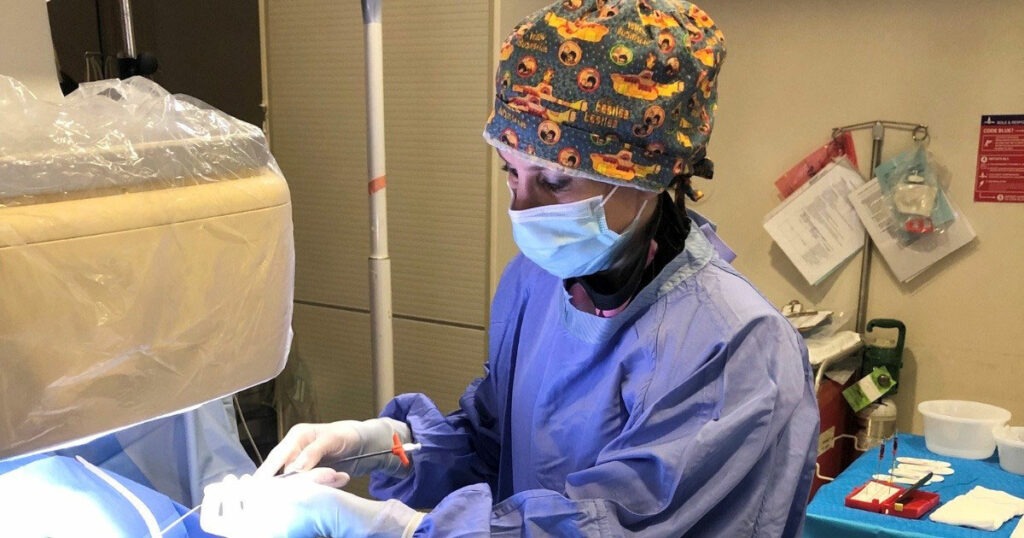Cardiology team at St. Michael’s reduces hospital visits with new implantable cardioverter defibrillator

A team of cardiologists at St. Michael’s Hospital are the first in Ontario to implant a new type of implantable cardioverter defibrillator (ICD), giving patients more freedom to enjoy their daily activities and reduce visits to hospital.
An ICD is a small electronic device, commonly used by patients at greater risk of cardiac arrest or with a history of ventricular tachycardia or fibrillation – conditions characterized by a rapid heart rate. The device is implanted under the skin, near the collarbone, where it monitors a patient’s heart rhythm. If it detects irregularities, the device delivers a shock to restore the normal rhythm.
This new Crome ICD, made by Medtronic, has technology that allows patients to be monitored remotely through an application on their smart phone or tablet. In the event of a cardiac arrest, the device sends an alert to the patient’s care team.
“ICDs are the standard treatment for many cardiac patients but the existing devices required patients to report shocks to their care team verbally or send data through an adapter plugged into a landline,” said Dr. Kaja Konieczny, Cardiologist at St. Michael’s.

“The Crome ICD automatically sends important data to our clinic, as long as the patient has the proper app and a WiFi signal. The device gives patients more freedom and reduces hospital visits, and helps us as the care provider to monitor any cardiac episodes.”
Remote monitoring has been beneficial during COVID-19 as most check-ins can be done virtually or over the phone, reducing potential exposures to the virus. It’s another way that teams at St. Michael’s are looking for ways to better support patients throughout the pandemic.
Implantation and testing of the Crome ICD is also easier. Unlike other ICDs, this one allows a technologist to test and program the device from a greater distance, reducing the number of people in the operating room.
“We’re extremely diligent with our infection prevention and control measures but the more people you have in an operating room, the greater the risk of infection,” said Dr. Konieczny. “During COVID-19, we’ve done everything possible to limit the number of people working together in close proximity.”
Since late June, three patients have received the Crome ICD at St. Michael’s and all three are doing well. For Dr. Konieczny, she says she appreciates the peace of mind the device provides and is pleased that St. Michael’s is leading the way.
“It’s reassuring to know that we’ll be notified right away if one of our patients experiences a life-threatening arrhythmia,” she said. “And it’s exciting to be the first in Ontario to feel this way. I’m grateful to my colleagues for making this possible.”
By: Anna Wasserman
